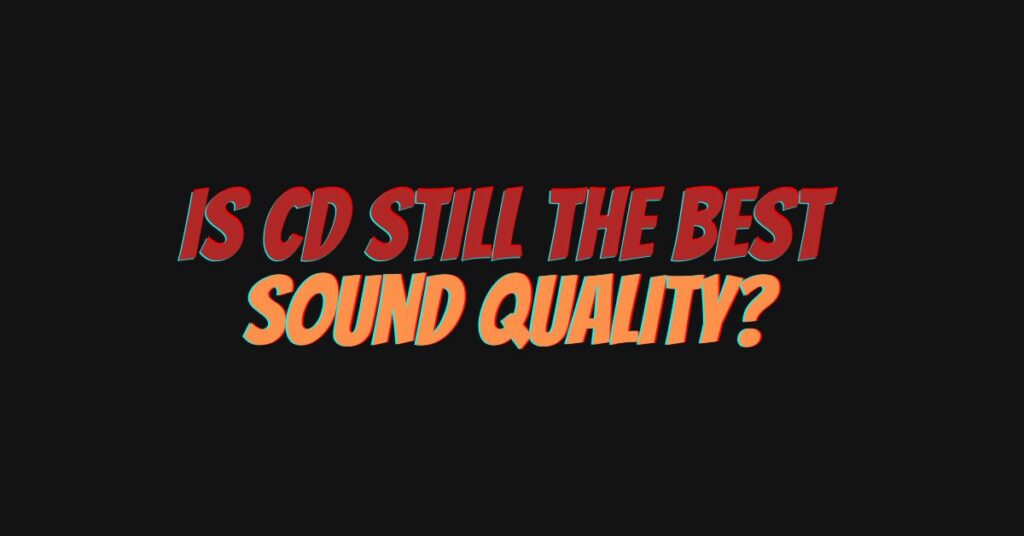The Compact Disc (CD) revolutionized the way we consumed music when it was introduced in the 1980s, offering a significant improvement in sound quality compared to its predecessors like vinyl records and cassette tapes. For years, CDs were considered the gold standard for high-quality audio. However, with the advent of various digital audio formats and advancements in technology, the debate over whether CD is still the best sound quality rages on. In this article, we’ll explore the strengths and weaknesses of the CD format and compare it to other digital audio formats to determine whether it still holds the title of the best sound quality.
The Advantages of CD Sound Quality
1. Lossless Audio: CDs use a lossless audio format, which means that the sound quality is nearly identical to the original recording. This format preserves every detail of the music, making it an excellent choice for audiophiles and music enthusiasts.
2. High Sampling Rate: CDs have a sampling rate of 44.1 kHz, which is capable of capturing frequencies up to 22 kHz. This exceeds the range of human hearing and ensures that even the most delicate nuances in the music are faithfully reproduced.
3. Dynamic Range: CDs offer a wide dynamic range, which is the difference between the softest and loudest sounds in a recording. This results in excellent clarity and realism in the sound.
4. Durability: CDs are more durable than analog formats like vinyl records and cassette tapes. They are less susceptible to wear and tear, which can affect sound quality over time.
The Competition: Other Digital Audio Formats
1. High-Resolution Audio (Hi-Res Audio): Hi-Res Audio formats, such as FLAC and ALAC, offer sound quality that rivals or even surpasses CDs. These formats support higher bit depths and sampling rates, capturing more audio detail and subtlety. Hi-Res Audio files are becoming increasingly popular among audiophiles.
2. Streaming Services: High-quality streaming services like Tidal and Qobuz offer lossless and Hi-Res Audio streaming options. While these services provide convenience, they may still fall short of the absolute sound fidelity offered by CDs or Hi-Res Audio files due to potential compression during streaming.
3. MP3 and Other Compressed Formats: While MP3 and similar formats are widely used for their small file sizes and portability, they sacrifice sound quality for compression. These formats discard some audio data to reduce file size, resulting in a noticeable loss of sound quality, especially when compared to CD.
4. Vinyl Records: Vinyl records have experienced a resurgence in popularity due to their analog warmth and unique sound. While they may not offer the same level of fidelity as CDs in terms of dynamic range and accuracy, vinyl enthusiasts appreciate their nostalgic and authentic charm.
Conclusion
Whether CD remains the best sound quality depends on the context and the preferences of the listener. CDs are an excellent choice for uncompromised audio quality, making them a preferred option for audiophiles who want to experience music exactly as the artist intended. However, Hi-Res Audio formats have emerged as strong contenders, offering even higher quality audio, and vinyl records continue to attract enthusiasts with their distinctive sound.
Ultimately, the “best” sound quality is subjective, as it depends on individual preferences, the listening environment, and the equipment used. As technology continues to evolve, the lines between different digital audio formats may continue to blur, and the choice between them will increasingly depend on factors beyond sound quality alone, such as convenience, nostalgia, and personal taste.


